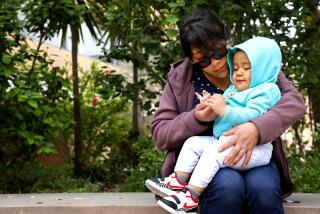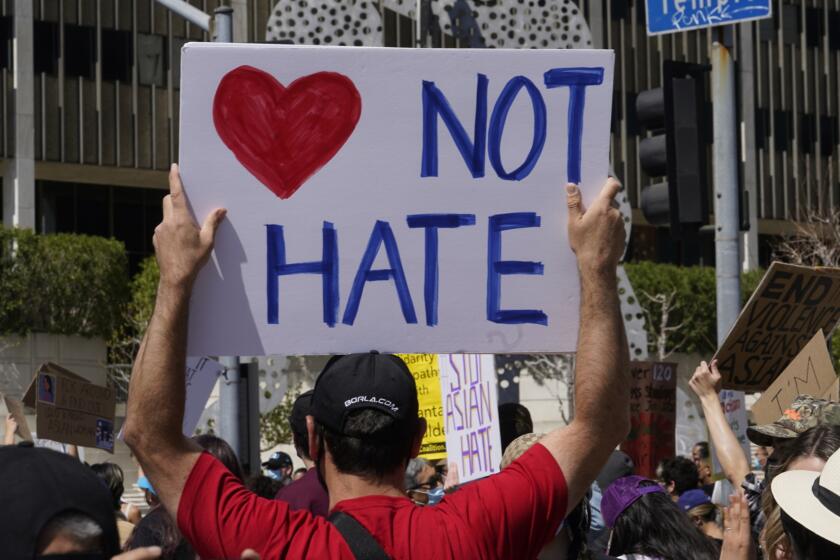Federal Probe Finds Faults at Juvenile Halls
Top Los Angeles County officials said Friday that they have fixed many problems identified by a federal investigation of the county’s three juvenile halls, which authorities accused of violating the constitutional rights of inmates by subjecting them to inadequate care.
Among other things, federal authorities said young inmates have been denied adequate mental health care and subjected to overcrowded conditions. The investigators listed 66 areas in which the county needed to improve to bring the facilities into compliance with constitutional requirements for inmates.
Responding, county officials said they had complied with many of those recommendations and were working on others.
Inspectors who visited Central Juvenile Hall in Lincoln Heights, Barry J. Nidorf Juvenile Hall in Sylmar and Los Padrinos Juvenile Hall in Downey between February and June 2001 found poor supervision, shoddy record-keeping and lax security.
There were also instances in which juveniles were said to have been restrained inappropriately, pepper-sprayed while handcuffed and diagnosed with medical conditions without a doctor’s review.
The litany of problems at the halls was detailed in a report delivered this week to the Board of Supervisors.
One particularly pointed finding was that the juvenile halls were “failing to meet the serious mental health needs of detained youth.”
Despite an estimate by the county that 50% of the young people entering the system needed mental health services, the report found that there was insufficient screening to identify juveniles with serious emotional disturbances, mental retardation or substance abuse disorders.
“We’re concerned,” Supervisor Mike Antonovich said after reviewing the report. “There’s no excuse for abusing young or old, and we want to be sure everybody’s rights are protected.”
The Probation Department has begun to address some of the issues raised in the report, Antonovich said, but he said he would introduce a motion at Tuesday’s Board of Supervisors meeting to request a status report on reforms.
Probation Department Chief Deputy Paul Higa said that the department has been in constant contact with the Department of Justice since the inspections.
“Some of their concerns were immediate, and some were more long term,” Higa said. “We believe we’ve dealt with more than 90% of the concerns.”
Since the inspections, the department has spent $6 million on increased screening and treatment of juveniles entering the system and $66 million on new construction, according to Higa.
The department has also hired more bilingual staff members, and it has increased cooperation among the agencies whose employees work at the halls. Still, officials conceded that the department needs to improve its training.
“We have a high turnover rate,” Higa said. “Most staff at juvenile halls have been there less than two years, so we’re in constant training mode.”
Combined, the three halls are designed to house about 1,400 juveniles, but at the time of the investigation, they held more than 1,900. Today, they hold about 1,600.
If the Probation Department does not correct the problems, the U.S. attorney general’s office may file a lawsuit, according to Ralph F. Boyd. Jr., the assistant attorney general who wrote the report.
More to Read
Start your day right
Sign up for Essential California for news, features and recommendations from the L.A. Times and beyond in your inbox six days a week.
You may occasionally receive promotional content from the Los Angeles Times.






